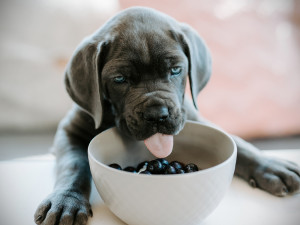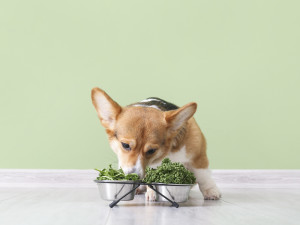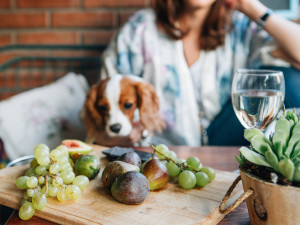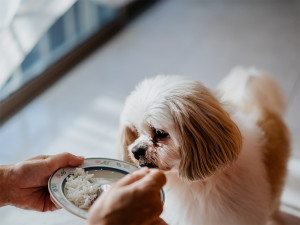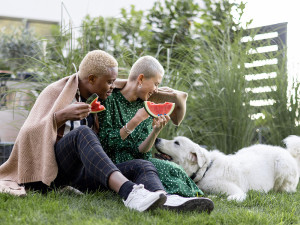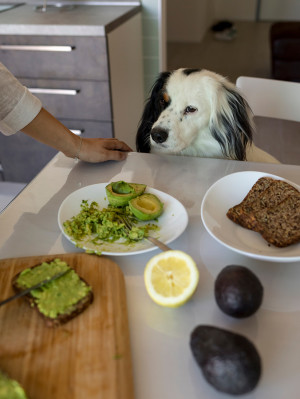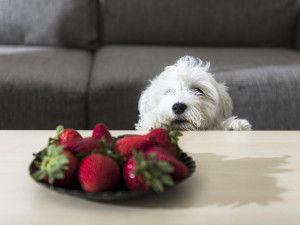Can My Dog Eat Pears?
Yes – pears and your dog can pair together. However, there are a few things to watch out for
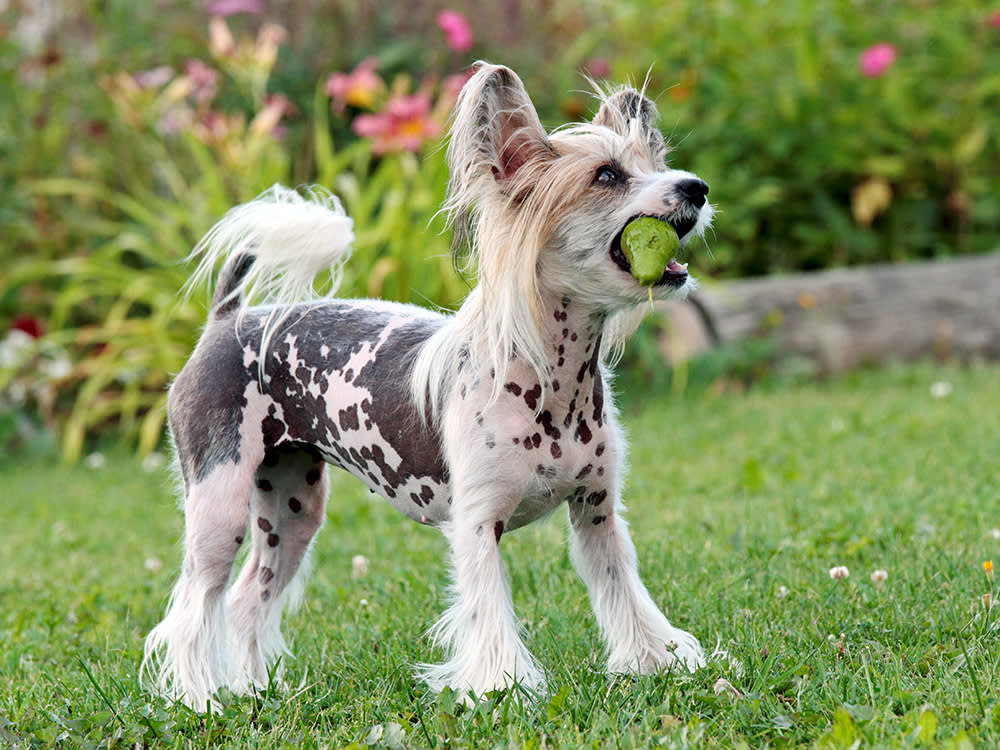
Share Article
Deliciously sweet and juicy, pears are a delightful snack for us humans. Naturally, we want to share the things we enjoy with our favourite furry friends, but not all fruits are safe for dogs.
The good news is that pears – minus their seeds – are safe, and when given to dogs in the right way, they make the pear-fect sharable snack.

Get (totally free) deals for food, treats, accessories, tech and way more pet parenting must-haves.
Pears: nutritious facts for dogs
Pears are high in vitamin C and K as well as fibre, which all contribute to a healthy immune system, functioning organs and a healthy digestive system.
Are pears good for dogs?
In moderation, pears are a good option for a healthy snack, full of vitamin C, vitamin A and fibre.
“However, like many fruits, they’re also very high in sugar and it’s only recommended feeding your dog a small amount,” said Dr Kate McCrossan, a veterinary surgeon practising in Northern Ireland. “Your dog won't necessarily benefit from any of these nutrients if they are fed too much pear.”
The seeds are also potentially toxic for your dog so make sure they’re fully removed from any pear you give your dog.
How to feed pears to dogs
“If you wish to give your dog pear, include it as part of their daily treat intake,” says Dr McCrossan. “Slice the pear into small chunks to avoid choking and serve it fresh and plain.”
It might go without saying but don’t replace your dog’s regular balanced meal with a bowl of sliced pears as they will likely be hungry and not nutritionally satisfied. Besides, who wants to eat a bowl of pears for dinner?
Can dogs eat pear seeds?
“Dogs should not eat the seeds from a pear,” says Dr McCrossan. “Pear seeds are toxic in large quantities as they include traces of the toxin cyanide and can also cause choking.”
Can dogs eat the pear core?
“As tempting as it may be to throw your leftover core to your dog, it usually contains seeds that are toxic for dogs. The core is also difficult for your dog to chew, and swallow – it’s best to just throw the core away,” says Dr McCrossan.
Can dogs eat tinned pears?
In short, like most tinned fruit, tinned pears are not good for dogs. Tinned pears contain too much sugar, which can irritate your dog’s digestive tract and the high-calorie content means your dog may put on a few unwanted kilos.
Fresh, ripe pears are the best pears to feed to dogs – save the tinned pears for your ice cream or custard dessert.
The bottom line: can dogs eat human food?
There are many safe human foods that dogs can enjoy. It’s best to consult an expert or do your research from a reputable source before feeding your dog something that isn’t specifically for dogs.
Any human food given is added as a treat, not as part of their balanced diet so it should not be served as their main meal. If you are wary of giving your dog human food, it’s better to be safe than sorry because generally, your dog will get all nutrients from a complete and balanced dog food.
What are some other fruits that are safe for dogs?
Bananas
If fed in moderation, it is safe for dogs to eat bananas and they tend to love them. Although, they are on the sugary side, so feed them in small quantities and avoid giving them the skin.
Apples
Dogs who enjoy a crunchy snack can munch on small pieces of apple. Rich in fibre, it’s a healthy treat option but just like pears, avoid the seeds and the core.
Strawberries
Strawberries are filled with fibre and vitamin C with teeth-whitening enzymes for dogs. However, due to natural sugars, moderation is key when offering them.
Fruits that are not safe for dogs
Grapes
Grapes can cause acute kidney failure in dogs. The toxic ingredient – tartaric acid – is present in variable amounts in every grape. Even if your dog eats one grape, you should check in with the vet to make sure everything is okay.
Raisins
Of course, the same applies to the dried version of grapes. The toxin in grapes isn’t eliminated when they’re dehydrated to make raisins. Raisins will actually contain more of the toxin by weight.
Avocado
While small amounts of avocado flesh are generally considered safe for dogs, larger quantities are riskier due to the presence of persin. Just to be safe, it’s best not to give your dog the green fruit.
Note: while caution was taken to give safe recommendations and accurate instructions in this article, it is impossible to predict an individual dog’s reaction to any food or ingredient. Readers should consult their vets and use personal judgement when applying this information to their own dogs’ diets.
Frequently asked questions
What happens if my dog eats a pear?
Pears are safe for dogs to eat if served in moderation and in small chunks.
Can dogs eat tinned pears?
No, tinned fruit tends to be high in sugar so best to give fresh pair to your dog.
Can I feed my dog the core of a pear?
No, the core usually has seeds that are toxic for dogs. The core can also be difficult for your dog to eat and digest.

Nuala McHugh
Nuala is a writeropens in new tab with a background in PR. She has worked with brands including Jollyes, Universal Studios, and Amazon. Based in Northern Ireland, she is now doing what she loves most: writing with her clingy cockapoo Bobby by her side.
Related articles
Can Dogs Eat Kale?
Yes, this superfood is good for your dog in small amounts
Can Dogs Eat Grapes?
The answer is no, no, no and here’s why
![Pet owner feeding white rice to her Shih Tzu dog.]()
Can Dogs Eat Rice?
Yes, actually. Just follow these guidelines
Can Your Dog Eat Watermelon?
Yep, you can share watermelon with your pup – but there are a few safety tips to keep in mind
Can Dogs Eat Avocado?
Hold the avo toast, please
Can Dogs Eat Strawberries?
In moderation, strawberries are a tasty, healthy treat for your pup
